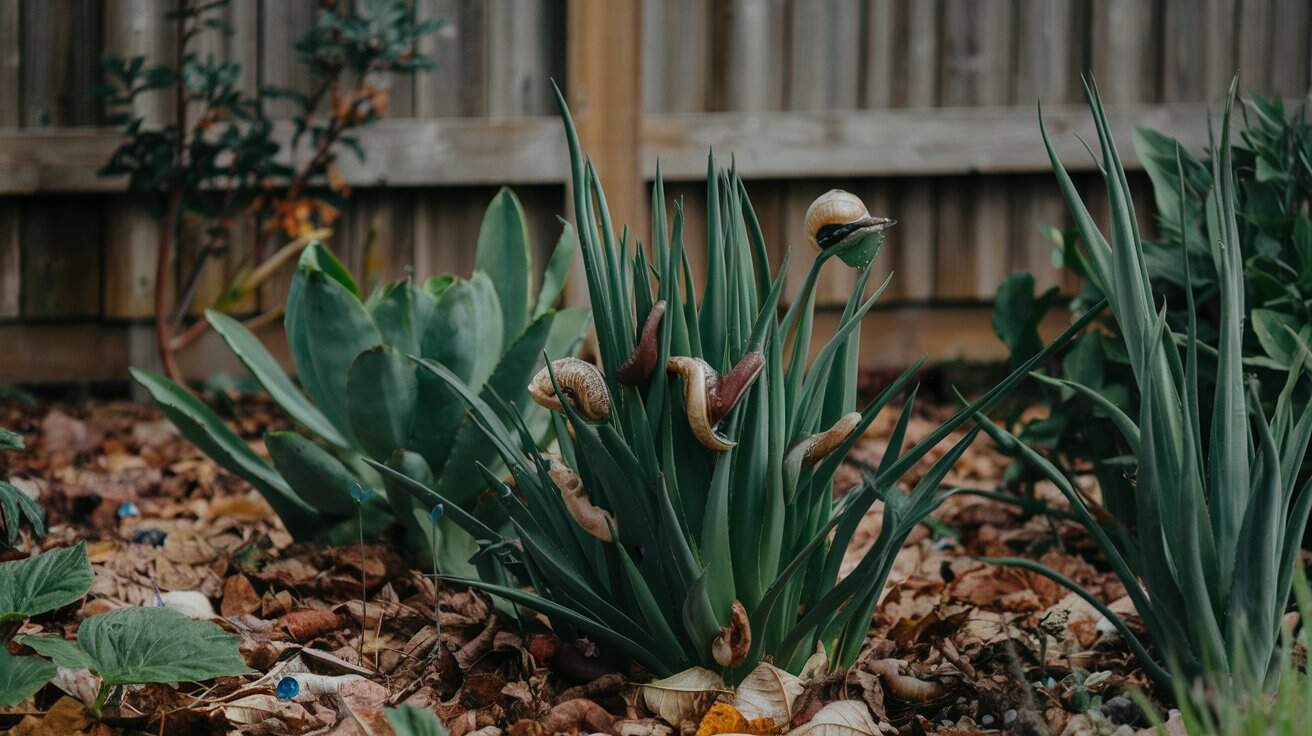Gardening can bring immense joy and a sense of accomplishment, but the presence of snails and slugs can quickly turn it into a frustrating battle.
These pesky intruders are known for feasting on leaves and stems, leaving your precious plants damaged.
However, there are effective and simple ways to prevent them from causing havoc in your garden.
1. Copper Strips
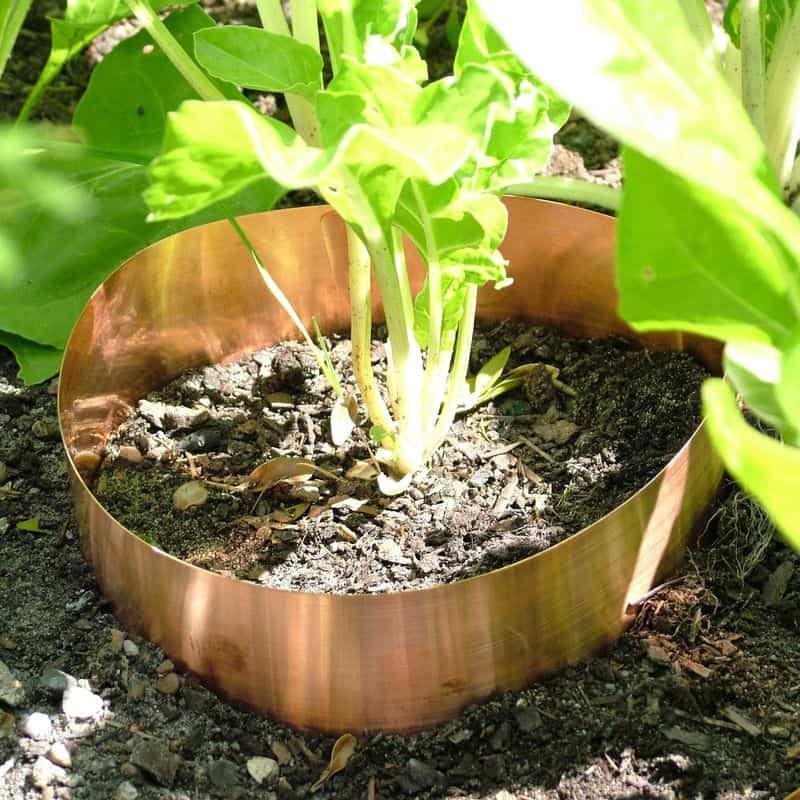
Copper strips offer a natural barrier that snails and slugs find repellent. When these creatures touch copper, a reaction occurs that discourages them from crossing.
Lay strips around plant bases or along garden beds. This method is easy and long-lasting.
The striking visual of copper also adds an unexpected decorative touch to your garden layout.
2. Beer Traps
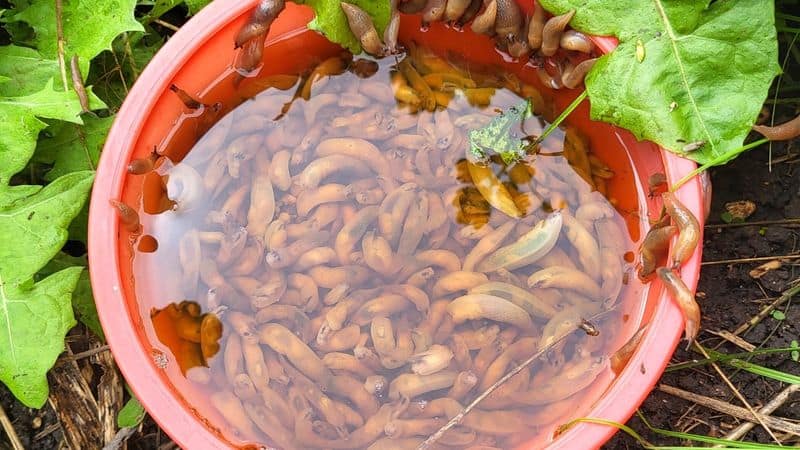
A fun and effective way to trap snails and slugs is by using beer. Place shallow dishes filled with beer at ground level.
These pests are attracted to the smell and will fall in, unable to escape. It’s a simple, cost-effective solution that requires regular maintenance but can significantly reduce their numbers.
3. Eggshell Barriers
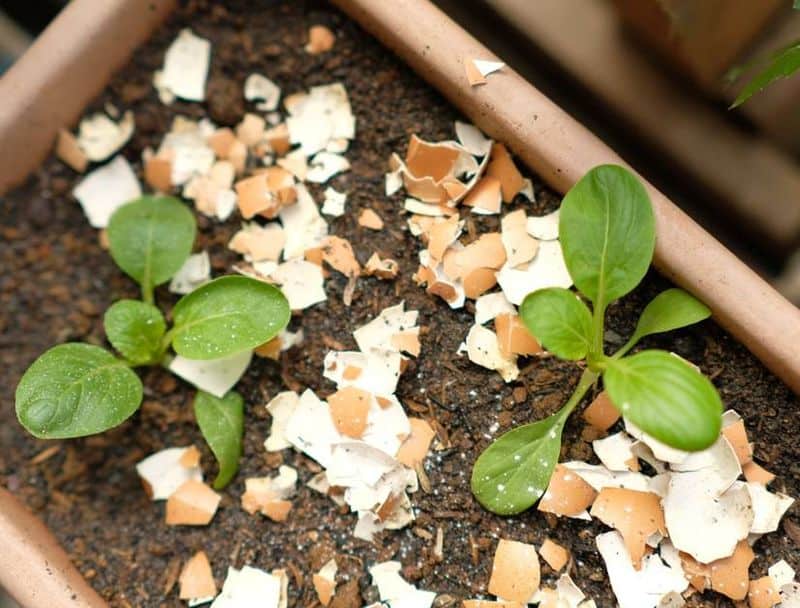
Repurposing eggshells into a garden barrier provides a sharp, uncomfortable texture that snails and slugs avoid.
Simply crush clean eggshells and sprinkle them liberally around vulnerable plants. Not only do they deter pests, but they also act as a natural fertilizer, enriching the soil with calcium.
4. Diatomaceous Earth
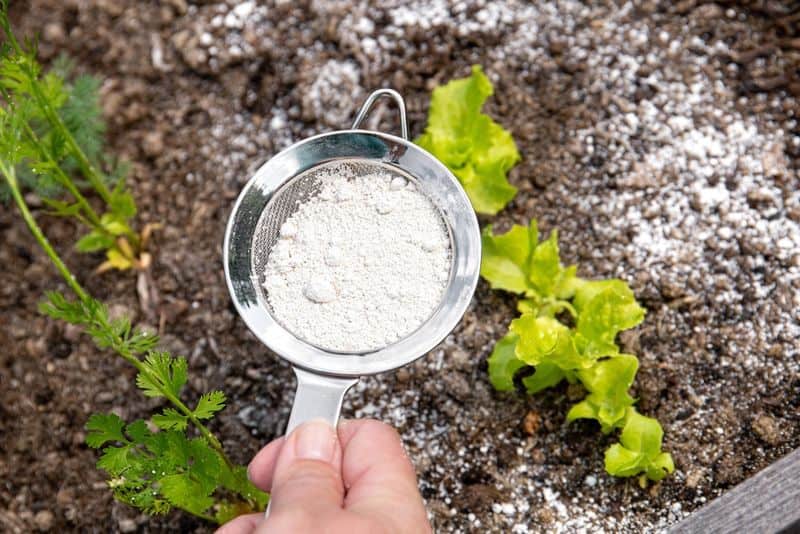
Diatomaceous earth is a fine powder that damages snail and slug exoskeletons upon contact.
Sprinkle this around your plants to create an inhospitable environment for these creepers.
It’s a non-toxic solution that’s safe for pets and beneficial insects. Just reapply after rain or watering to ensure continued effectiveness.
5. Handpicking
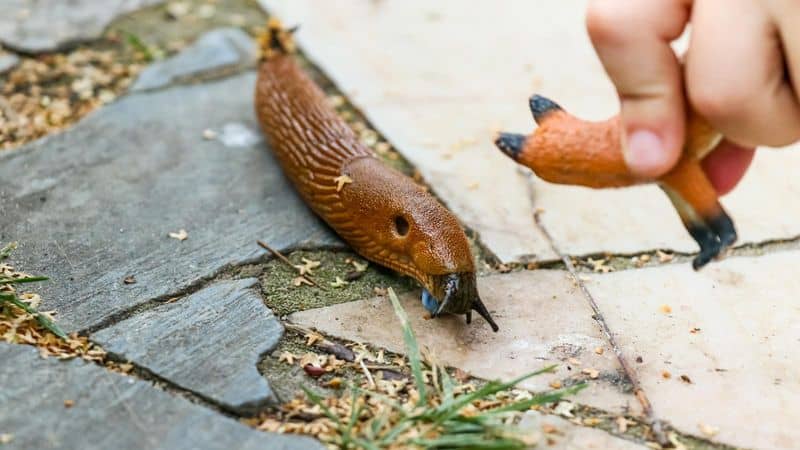
For those who can spare the time, handpicking is a personal and immediate way to reduce snail and slug numbers.
Armed with a flashlight, embark on a nightly patrol to gather and dispose of these pests.
While it requires dedication, the satisfaction of protecting your plants directly is rewarding. Plus, it’s eco-friendly!
6. Natural Predators
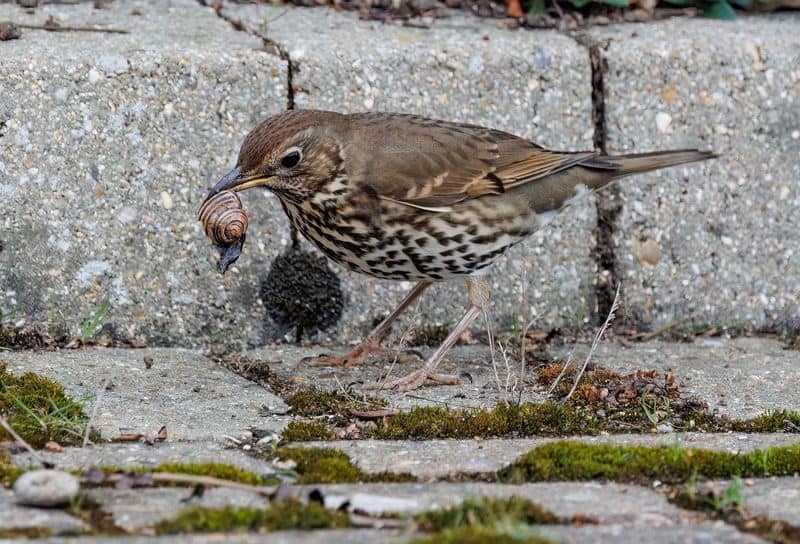
Encouraging natural predators like birds, frogs, and hedgehogs can help control the snail and slug population.
Creating a welcoming habitat involves providing water sources and shelter.
Not only do these animals assist in pest control, but they also bring a lively, natural beauty to your garden space, enhancing its ecosystem.
7. Coffee Grounds
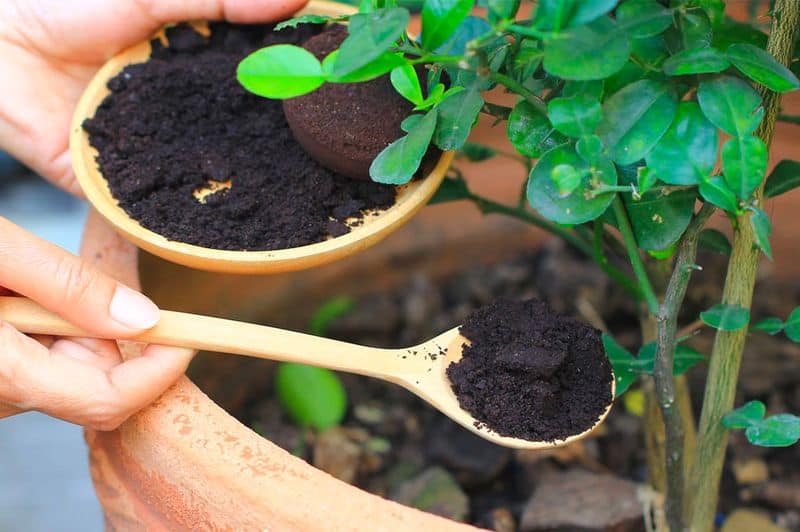
Used coffee grounds can deter snails and slugs with their texture and caffeine content.
Sprinkle these grounds around your plants to create an unpleasant surface for crawling pests.
This eco-friendly method recycles waste while adding organic matter to your soil. It’s a win-win for gardeners and the environment alike.
8. Salt Barriers
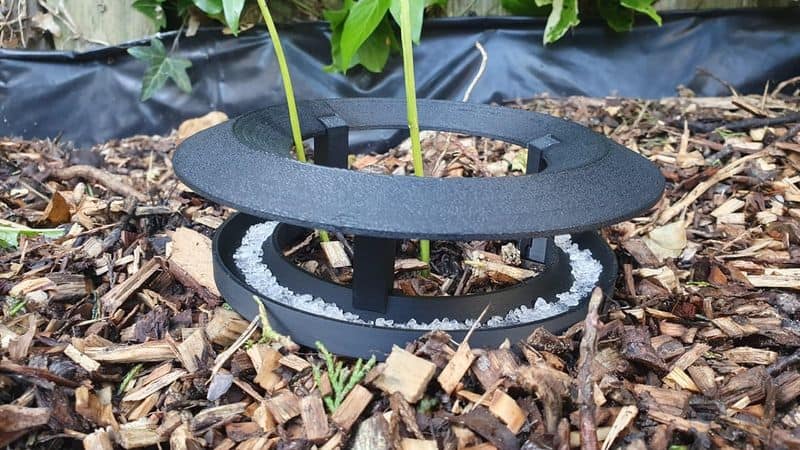
Salt is known for its desiccating properties, making it a formidable barrier against snails and slugs.
Sprinkle it along garden edges or plant borders, but with caution, as excessive salt can harm soil health.
This method is highly effective yet should be used sparingly to prevent potential soil damage.
9. Slug-Resistant Plants
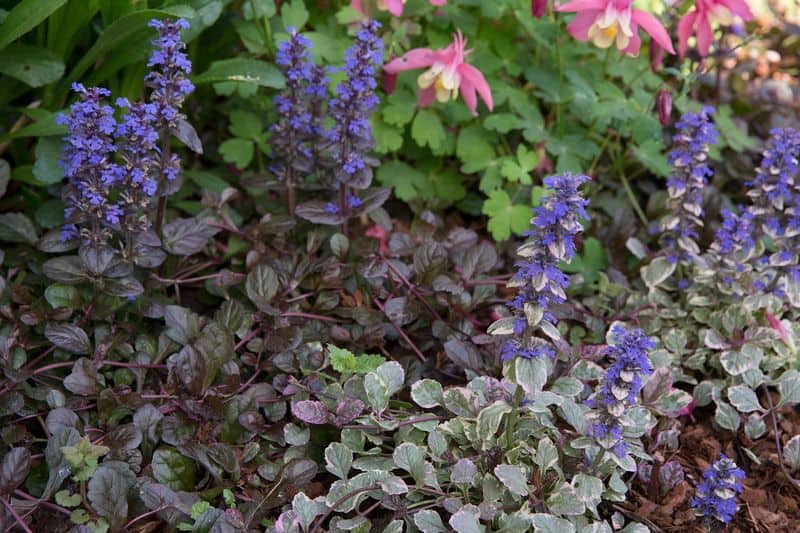
Planting varieties that slugs and snails dislike, such as lavender, rosemary, and ferns, can naturally deter these pests.
These plants provide a fragrant and visually appealing display while reducing the likelihood of an invasion.
Integrating them into your garden plan is a strategic way to minimize damage while enhancing aesthetics.
10. Neem Oil
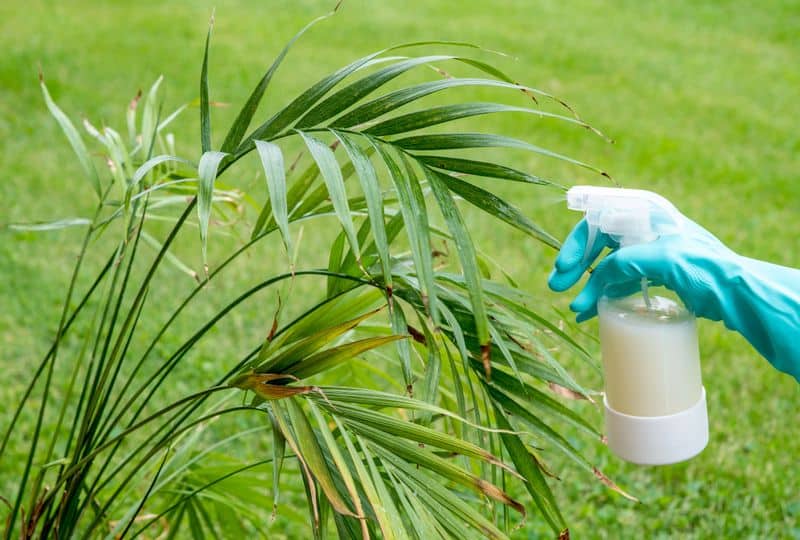
Neem oil, derived from the neem tree, acts as a natural repellent for snails and slugs. Mix with water and spray on plants to create a protective coat.
This organic method not only deters pests but also benefits plant health by preventing fungal infections.

